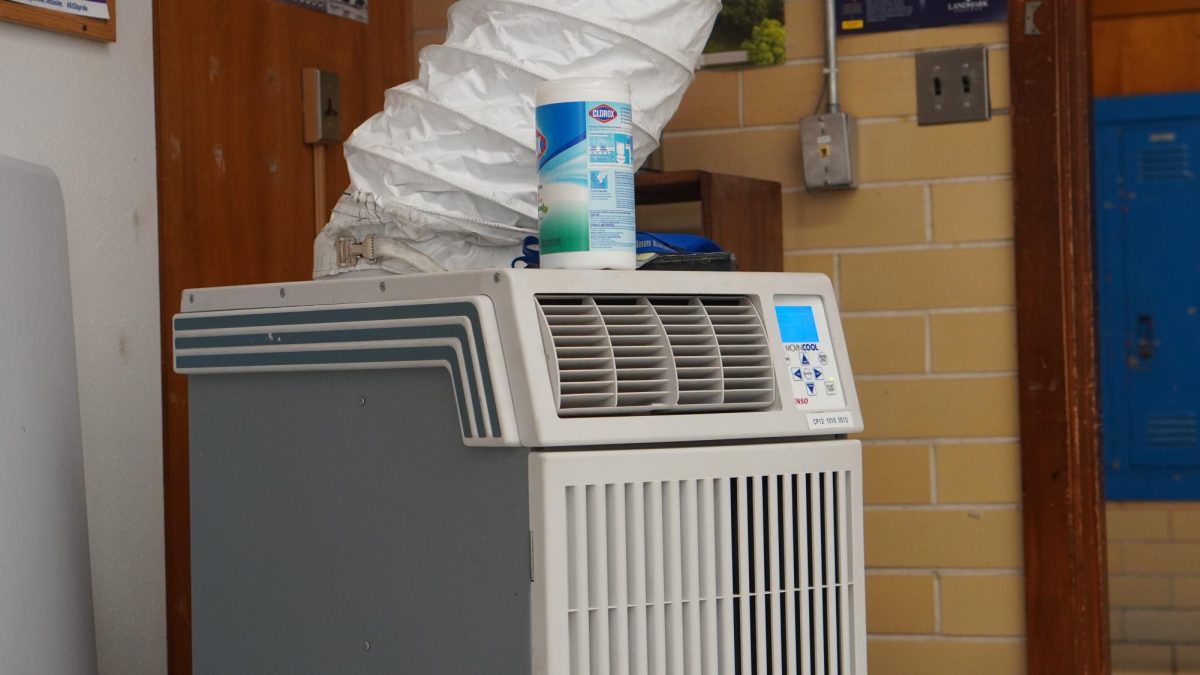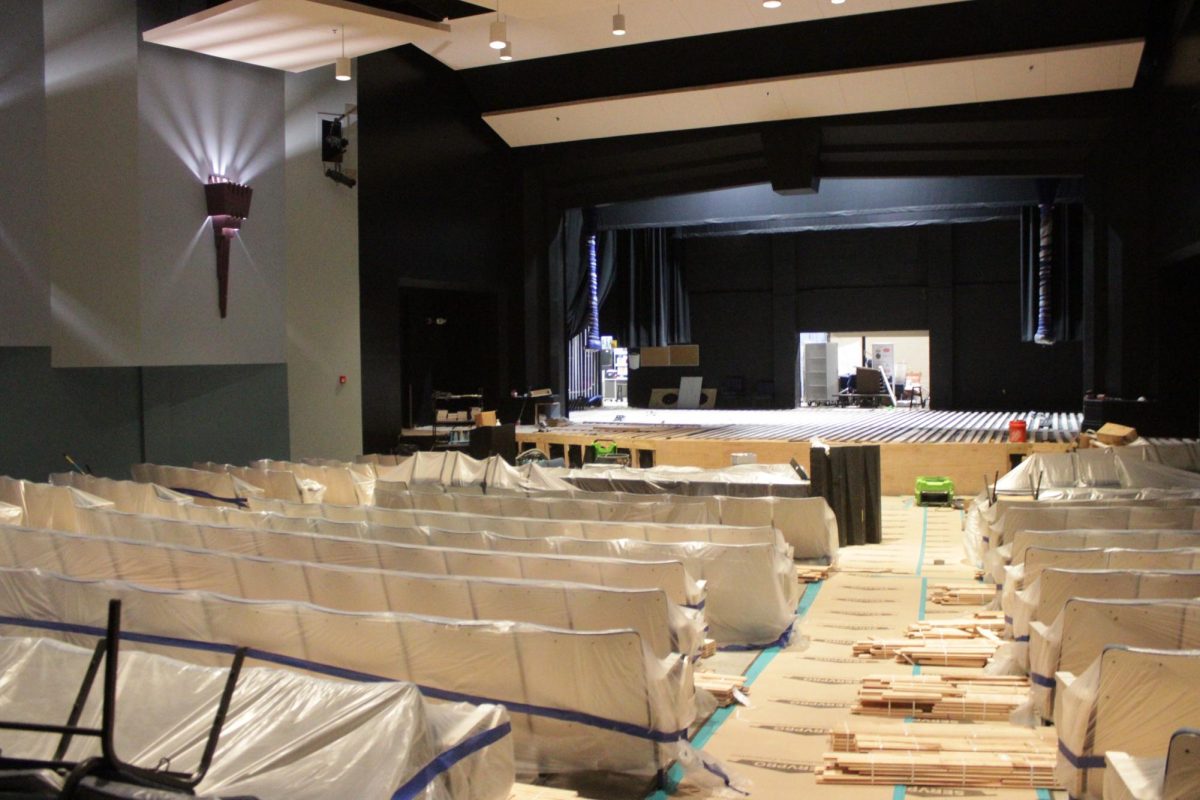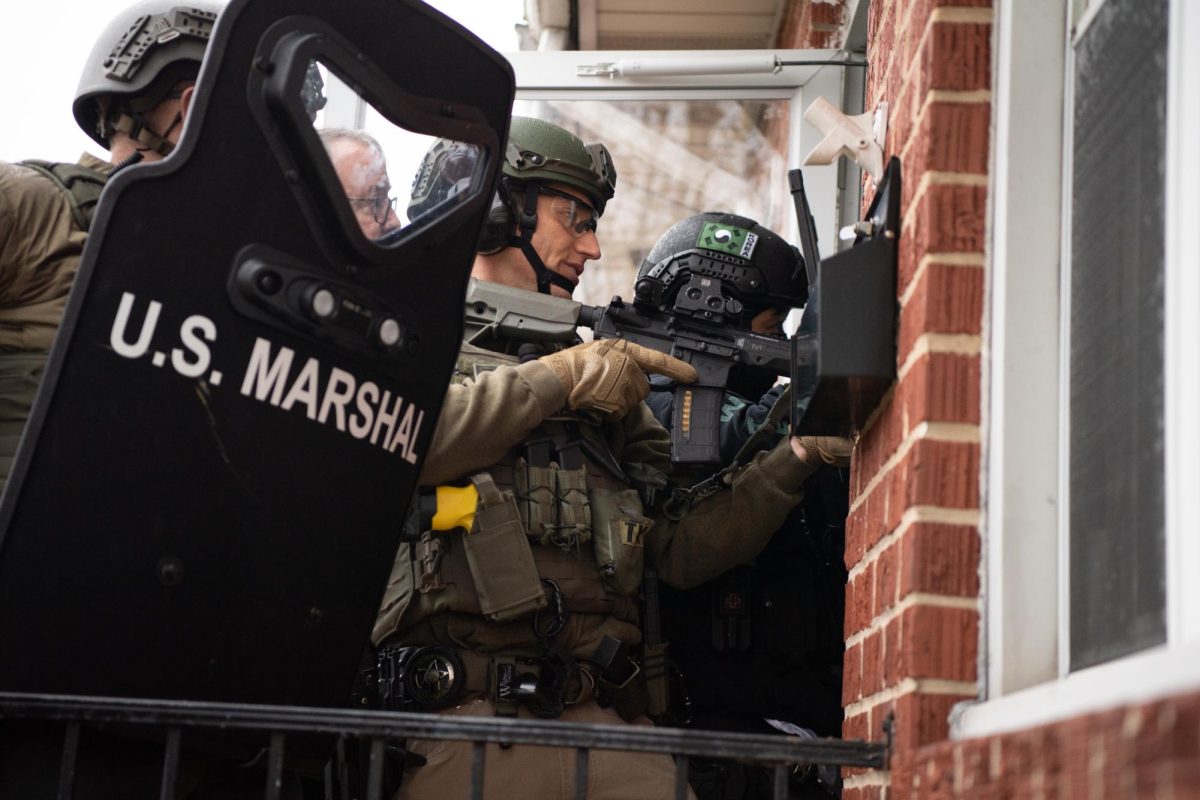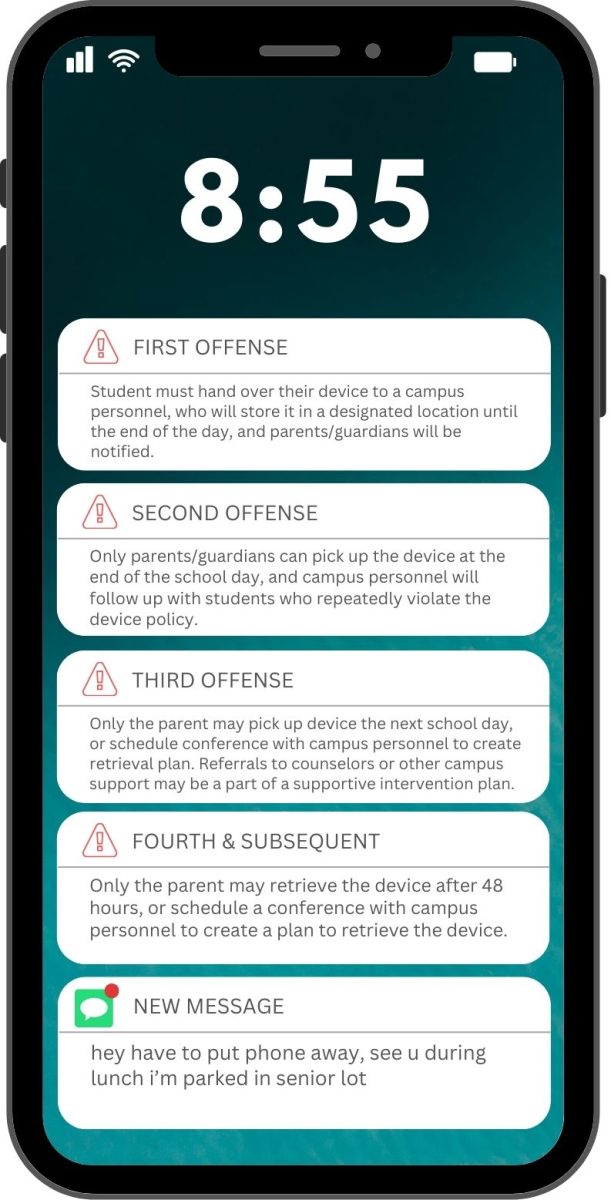Thirty minutes before doors opened on the first day of school, head custodian Daniel Sena had a problem. And it left him sweating.
“Around 7 o’clock, it started feeling very humid,” Sena said. “That’s a sign that the cold water that makes the AC cold is not working.”
During the last two weeks of summer, the air conditioning in the main building experienced outages, largely because of the record-breaking heat wave sweeping through central Texas.
Sena and the rest of the custodial staff are on the frontlines in this ongoing climate battle, as they are the middlemen between teachers experiencing an outage and the district maintenance team responsible for fixing it. On the first day, Sena texted maintenance as soon as he realized the campus wasn’t cooling down.
“They’re constantly checking the AC, but I guess anything that could’ve gone wrong did go wrong,” Sena said.
The main air conditioning is fed by cold water, which runs through the system and cools the air.
The issues with the central AC were resolved early on in the day but that didn’t prevent students and teachers from feeling the heat. Knights that came back to campus earlier in the summer experienced weeks of spotty climate control.
“I tried to [work in Room 130] at the beginning and then I gave up and went to a tiny little office in the main office area,” said college and career counselor Camille Nix, who reported back to school on July 17.
The University Boulevard hallway was majorly impacted by the summer outages. Nix hosted two college-application workshops in August and the dozens of warm bodies in room 130 exacerbated the uncomfortable temperatures.
“I remember it not only being hot but also very sticky and humid,” senior Lila Juenger, who attended one of the workshops, said. “Mix that with no air conditioning and it was pretty hard to focus.”
Now, Nix’s room is cooled by a small portable unit.
“There was a solution after that because we lost our minds,” Nix said. “And so they brought that [unit] in over the weekend.”
Sena feels that overcrowding creates more strain on the system. This year McCallum has surpassed 1900 students, up from 1824 last school year.
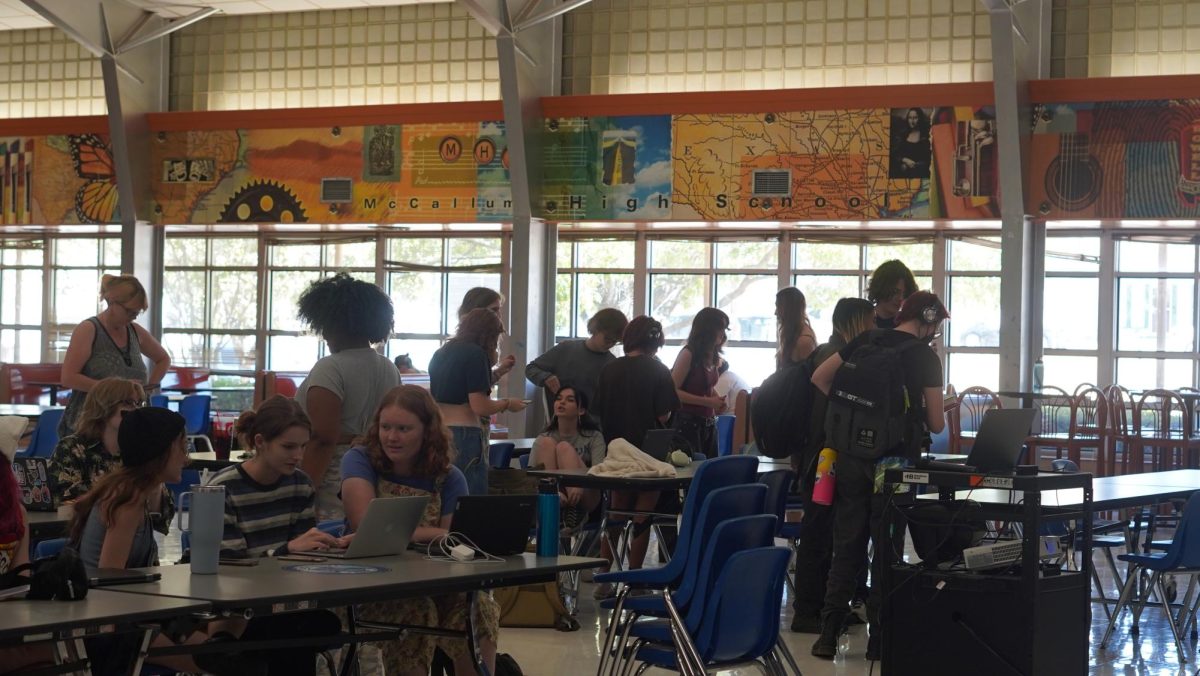
The portable units seen in Nix’s room are only viable solutions on a small scale. According to Sena, should an entire building lose AC for an extended period, maintenance brings in much larger equipment.
“It has happened before, and they bring what is called a temporary unit,” Sena said. “And it’s in like a small 18-wheeler, and it sits out there in the courtyard. They reconnect the AC and make the whole thing work.”
Classrooms outside the main building aren’t spared from the outages either. The MAC’s air conditioning failed around the same time as the main building’s over the summer.
“Usually when the building goes down the people in the MAC don’t feel it, but it went down all at the same time and from what I know they’re not connected at all,” Sena said.
On Sept. 8, the MAC AC failed again and the building reached an internal temperature of 90°F. Art and theater classes were forced to relocate to the cafeteria.
“It [the MAC] is nice and toasty,” senior technical theater student Maggie Coulbourn said.
Coulbourn and several of her fellow tech students are on crew for Sweet Charity, the upcoming fall musical. AC outages would make rehearsing and holding crew calls difficult.
“If it continues to be super hot, it could be a problem,” Coulbourn said. “And if it doesn’t get fixed, people can’t be in the catwalks. It’s already so hot up there because you’re above the AC anyway. Without the AC, it’s not safe.”
As of Sept. 11, the AC was restored in the MAC, but just the next day, the AC was out in the fieldhouse. Large fans were brought in to keep athletes, dancers and cheerleaders cool. In the long term, these kinds of dysfunction will be addressed by general facility improvements, like those funded by the 2022 AISD bond.
Sena remains on high alert for signs of a dead unit, like humidity or a less than arctic cafeteria.
“In the cafeteria, for some reason the AC works real good,” Sena said. “It’s always cold. When the cafeteria isn’t cold, to me that’s like an alarm. Like OK there’s something wrong with the whole unit.”
If the McCallum campus experiences an outage again, Sena urges students and teachers to not project their frustrations with the heat onto the people trying to fix it.
“There are a lot of people doing their best to keep them cool,” Sena said. “Understand that we’re as frustrated as they are and that we take their concerns seriously and just to be a little bit more understanding.”


